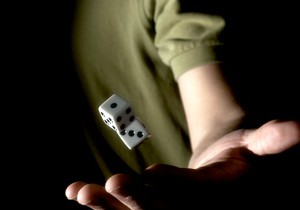What Is Gambling Addiction?
Clinically, gamblers having trouble controlling their behaviors are known either as problem gamblers, or pathological gamblers; with pathological gamblers at a severe end of the compulsive spectrum.
Problem gamblers gamble even though it does them some harm. Harm is self-defined, and is not related to amounts of money lost or frequency of wagering. Some examples could be gambling at a level that causes some anxiety or depression, that interferes with personal relationships, that interferes with professional or educational responsibilities or gambling more than one can afford to lose.
Pathological gamblers are problem gamblers demonstrating a serious compulsion to gamble. They will feel intense cravings to wager, experience significant harms from their gambling and have little control over their gambling behaviors. Pathological gamblers can rarely stop gambling without help, almost all will experience accompanying mental health disorders such as depression or anxiety, and about 20% will attempt suicide at some point.
Between 4%-6% of all recreational gamblers will develop a gambling problem.
Pathological gambling is recognized by the American Psychiatric Association as an impulse control disorder, a form of mental illness; and is considered a progressive, but treatable condition.
Are Certain Forms of Gambling More Addictive Than Others?
Any type of gambling can become problem gambling, but certain forms of gambling seem to cause an accelerated progression of the problem. The speed of play influences the addictive properties of the game, with quicker action more problematic. Also, certain types of gamblers, who play for an "escape" rather than for the excitement of the game, seem predisposed to quicker disease progression.
For these two reasons, gamers who play primarily VLT machines or slot machines can become pathological far more quickly.
How Can You Get Addicted When Nothing is Consumed?
Although gamblers consume no intoxicants, a compulsion to gamble shares many similarities with an addiction to drugs or alcohol. Both types of addictions cause cravings and a tolerance, both get progressively worse over time, and both respond to treatment.
Although nothing is consumed, gambling behaviors create similar rewards changes in the brain as a drug like cocaine, and the end result of excessive gambling or drug taking is similar. You get addicted to the feelings (high) of gambling, just as you get addicted to the high of drugs.
Who Is Most at Risk?
Between 4% and 6% of gamblers will develop a problem, and there are an estimated 2 million pathological gamblers in America. Anyone who gambles excessively is at risk of addiction, but certain types of people are statistically more likely to develop gambling problem.
People more at risk for addiction:
- Those with a past or present history of substance abuse
- Those with a past or present history of mental illness
- Those with a history of head trauma
- Those with a history of emotional, physical or sexual assault
- Those with a family history of addiction or alcoholism
The vast majority can gamble without ever developing a problem, and some problem gamblers seem able to restrain themselves after seeing the harms of their actions, but a small but significant (and tragic) number of gamblers will develop a serious gambling problem.
Is it About Money?
The thrill of the payday plays an integral role in the early excitement and attraction of gaming, and those that gamble too much tend to have serious financial difficulties; but for those who develop a gambling addiction - money has little to do with the compulsion to keep playing.
Gambling addicts chase the feeling of the action, and whether seeking exhilaration or analgesic escape, they are compelled to play, win or lose.
Well intentioned friends or family sometimes pay gambling debts, believing that if the financial pressures evaporate so to will the gambling. This will not work.
Do You Have to Gamble Everyday to Have a Gambling Problem?
Some problem gamblers game only occasionally, during binge gambling sessions. To meet the criteria for problem gambling, gambling behaviors need only cause you personal harm.
Since problem and pathological gambling are progressive in nature, over time, most problem gamblers will gamble more frequently, and wager greater amounts of money.
Is There a Risk of Suicide?
Pathological gamblers, especially end-state hopeless gamblers, are at a very high risk for suicidal ideations and even attempted suicides. About 1 in 5 will attempt suicide, with virtually all considering it at some point.
Most pathological gamblers will have developed a concurrent mental health issue, with serious depression or anxiety compounding the risks of suicide.
What Treatments Work?
No one treatment for gambling addiction helps all pathological or problem gamblers – and although research indicates that medications may eventually help greatly, no drugs are currently approved for the treatment of gambling addiction.
Available treatments include 12 steps meetings such as Gamblers Anonymous, self help group meetings, cognitive behavioral therapy, individual therapy sessions and psychiatric medications.
Most gamblers receive treatment on an outpatient basis, but inpatient rehabs are also available for those in real need.
No one treatment is perfect, but gambling addiction is a treatable disease.
Page last updated Aug 17, 2010


